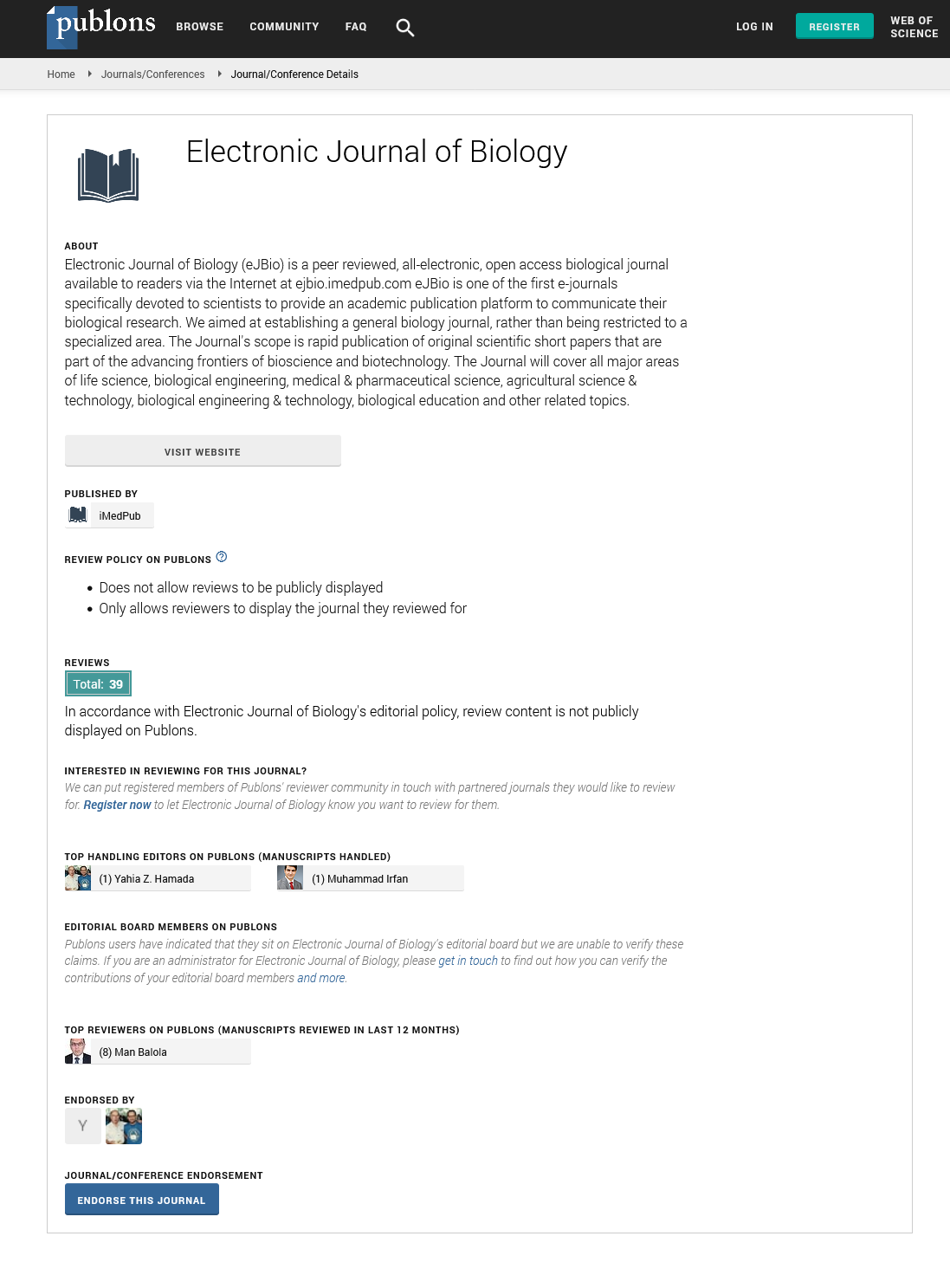Abstract
Effect of Foliar Application of Jasmonic Acid on Hypericin Content of St. JohnÃÆâÃâââ¬Ãâââ¢s Wort ( Hypericum perforatum L.)
St. John’s wort (Hypericum perforatum L.) belongs the family Hypericaceae, is one of important medicinal plants in the world. This herb has used in traditional folk medicine for the treatment of various ailments. Jasmonic acid (JA) and its methyl ester, methyl jasmonate (MJ), is regarded as endogenous regulator that plays important roles in regulating stress responses, plant growth and development. A pot experiment was conducted to assess the effect of foliar application of JA on herbage yield, and hypercin content in the tetra-hydrofuran extract from the aerial parts of H. perforatum. Experimental treatments included (I) water foliar application (control), (II) water + acetone foliar application (as a solvent), (III-VI) 50, 100, 200, and 400 μL/L JA. Statistical analysis indicated that there were no significant differences among treatments for total dry matter. The results indicted the different levels of the foliar application of JA do have highly significant impacts on hypericin content. The highest amount of hypericin obtained from foliar application 200 μL/L JA with 0.8% (w/w) hypericin/extract in both harvesting times (before and after the flowering stages). Finally, foliar application JA could be used as a source for rapid and increased production of hypericin, as an important secondary metabolite in H. perforatum with a wide range of biologically active.
Author(s):
B. Hamedi, A. Ghasemi Pirbalouti, P. Moradi
Abstract | Full-Text | PDF
Share this

Google scholar citation report
Citations : 5001
Electronic Journal of Biology received 5001 citations as per google scholar report
Electronic Journal of Biology peer review process verified at publons
Abstracted/Indexed in
- Google Scholar
- China National Knowledge Infrastructure (CNKI)
- CiteFactor
- Electronic Journals Library
- Zoological Records
- WorldCat
- Proquest Summons
- Publons
- MIAR
- Openaccessarticles.com
- Secret Search Engine Labs
Open Access Journals
- Aquaculture & Veterinary Science
- Chemistry & Chemical Sciences
- Clinical Sciences
- Engineering
- General Science
- Genetics & Molecular Biology
- Health Care & Nursing
- Immunology & Microbiology
- Materials Science
- Mathematics & Physics
- Medical Sciences
- Neurology & Psychiatry
- Oncology & Cancer Science
- Pharmaceutical Sciences


